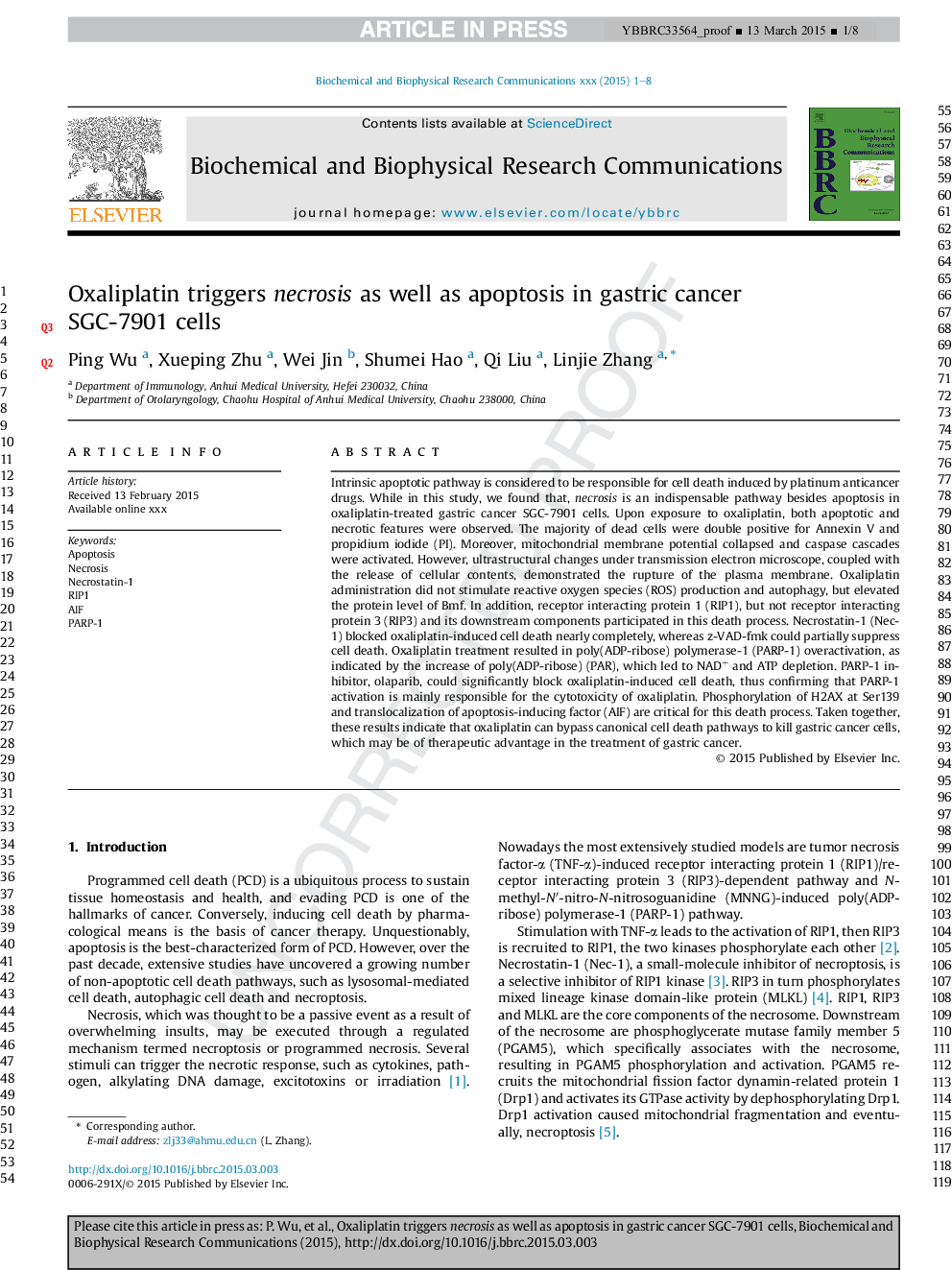| کد مقاله | کد نشریه | سال انتشار | مقاله انگلیسی | نسخه تمام متن |
|---|---|---|---|---|
| 10752159 | 1050324 | 2015 | 8 صفحه PDF | دانلود رایگان |
عنوان انگلیسی مقاله ISI
Oxaliplatin triggers necrosis as well as apoptosis in gastric cancer SGC-7901 cells
دانلود مقاله + سفارش ترجمه
دانلود مقاله ISI انگلیسی
رایگان برای ایرانیان
کلمات کلیدی
موضوعات مرتبط
علوم زیستی و بیوفناوری
بیوشیمی، ژنتیک و زیست شناسی مولکولی
زیست شیمی
پیش نمایش صفحه اول مقاله

چکیده انگلیسی
Intrinsic apoptotic pathway is considered to be responsible for cell death induced by platinum anticancer drugs. While in this study, we found that, necrosis is an indispensable pathway besides apoptosis in oxaliplatin-treated gastric cancer SGC-7901 cells. Upon exposure to oxaliplatin, both apoptotic and necrotic features were observed. The majority of dead cells were double positive for Annexin V and propidium iodide (PI). Moreover, mitochondrial membrane potential collapsed and caspase cascades were activated. However, ultrastructural changes under transmission electron microscope, coupled with the release of cellular contents, demonstrated the rupture of the plasma membrane. Oxaliplatin administration did not stimulate reactive oxygen species (ROS) production and autophagy, but elevated the protein level of Bmf. In addition, receptor interacting protein 1 (RIP1), but not receptor interacting protein 3 (RIP3) and its downstream components participated in this death process. Necrostatin-1 (Nec-1) blocked oxaliplatin-induced cell death nearly completely, whereas z-VAD-fmk could partially suppress cell death. Oxaliplatin treatment resulted in poly(ADP-ribose) polymerase-1 (PARP-1) overactivation, as indicated by the increase of poly(ADP-ribose) (PAR), which led to NAD+ and ATP depletion. PARP-1 inhibitor, olaparib, could significantly block oxaliplatin-induced cell death, thus confirming that PARP-1 activation is mainly responsible for the cytotoxicity of oxaliplatin. Phosphorylation of H2AX at Ser139 and translocalization of apoptosis-inducing factor (AIF) are critical for this death process. Taken together, these results indicate that oxaliplatin can bypass canonical cell death pathways to kill gastric cancer cells, which may be of therapeutic advantage in the treatment of gastric cancer.
ناشر
Database: Elsevier - ScienceDirect (ساینس دایرکت)
Journal: Biochemical and Biophysical Research Communications - Volume 460, Issue 2, 1 May 2015, Pages 183-190
Journal: Biochemical and Biophysical Research Communications - Volume 460, Issue 2, 1 May 2015, Pages 183-190
نویسندگان
Ping Wu, Xueping Zhu, Wei Jin, Shumei Hao, Qi Liu, Linjie Zhang,